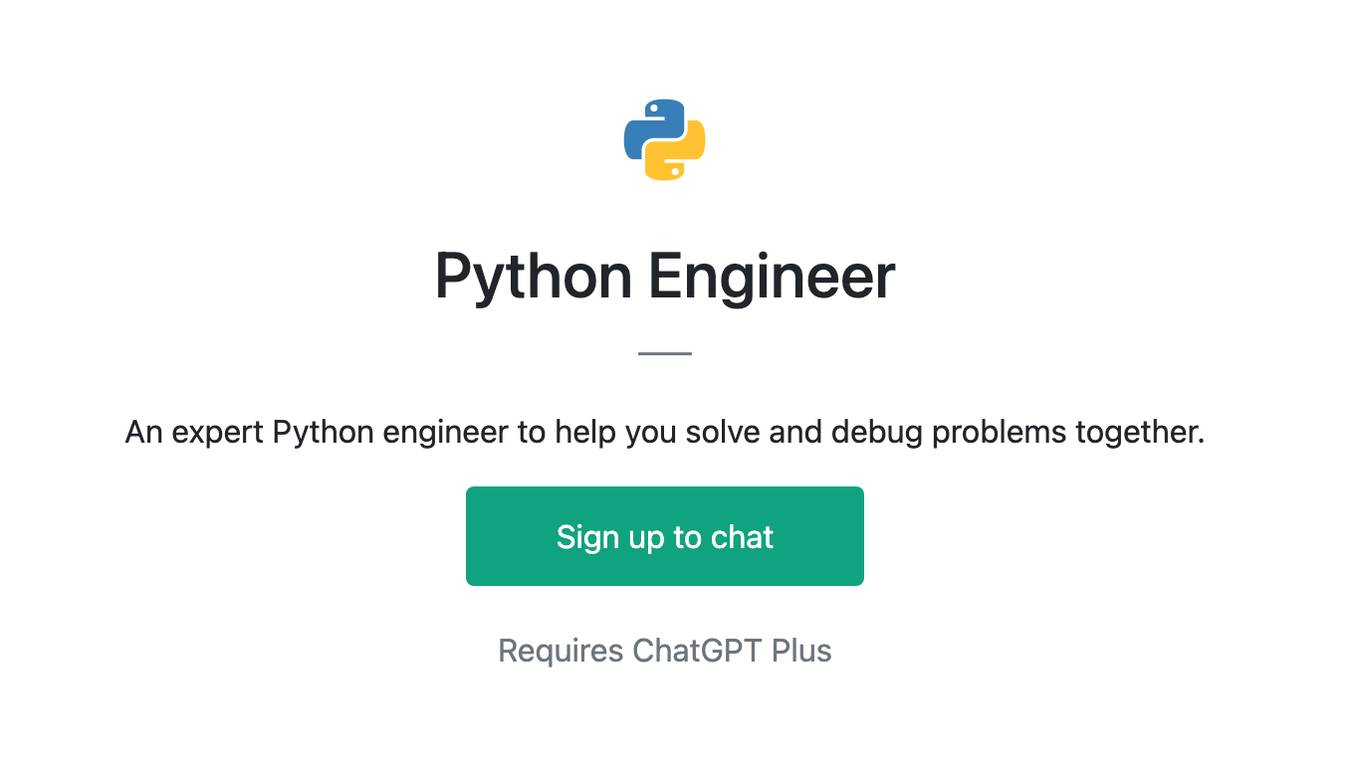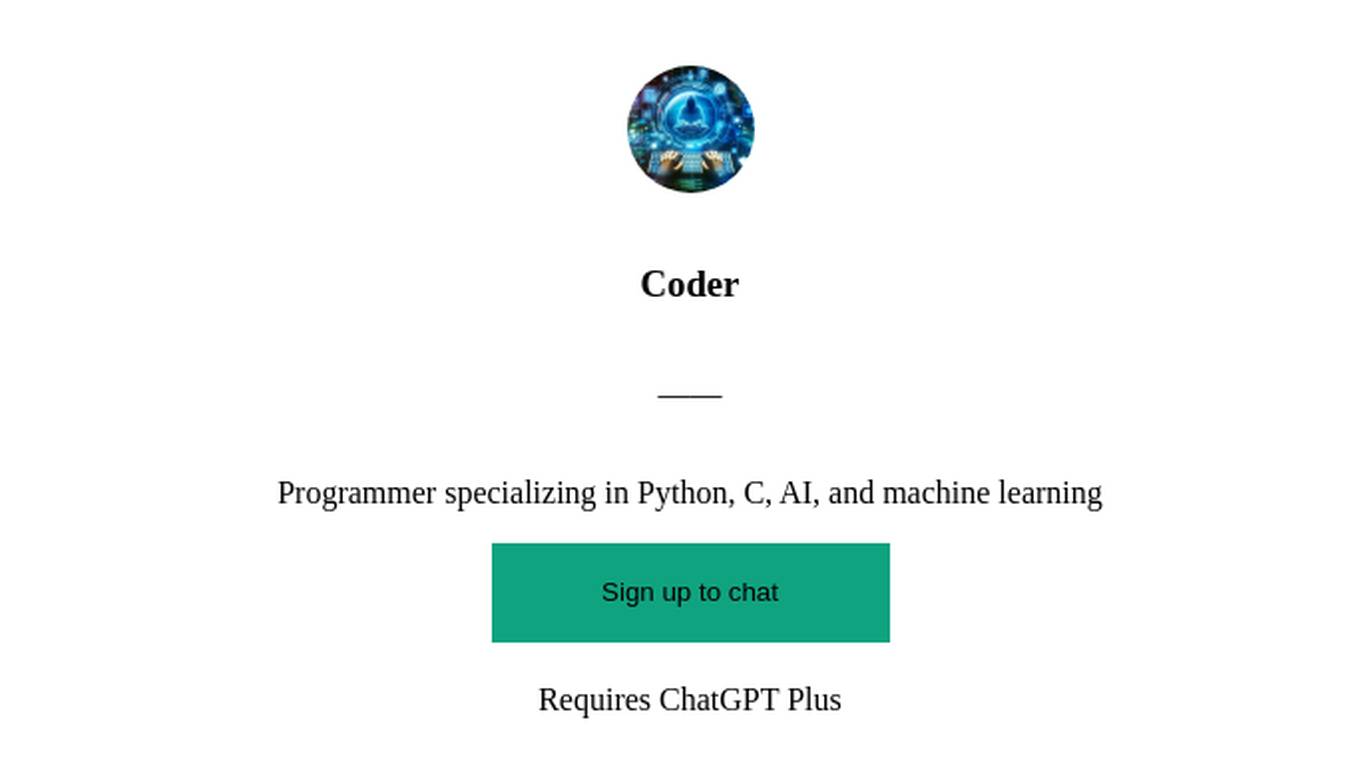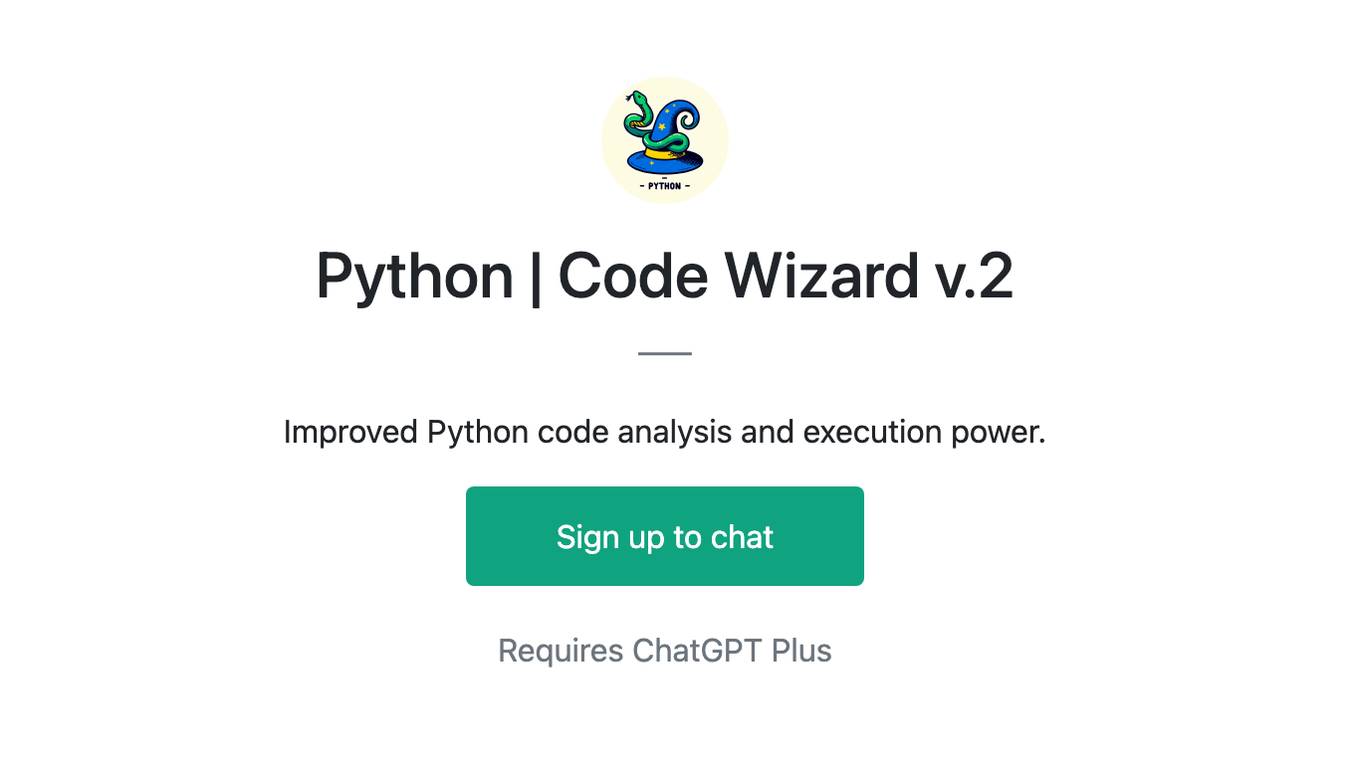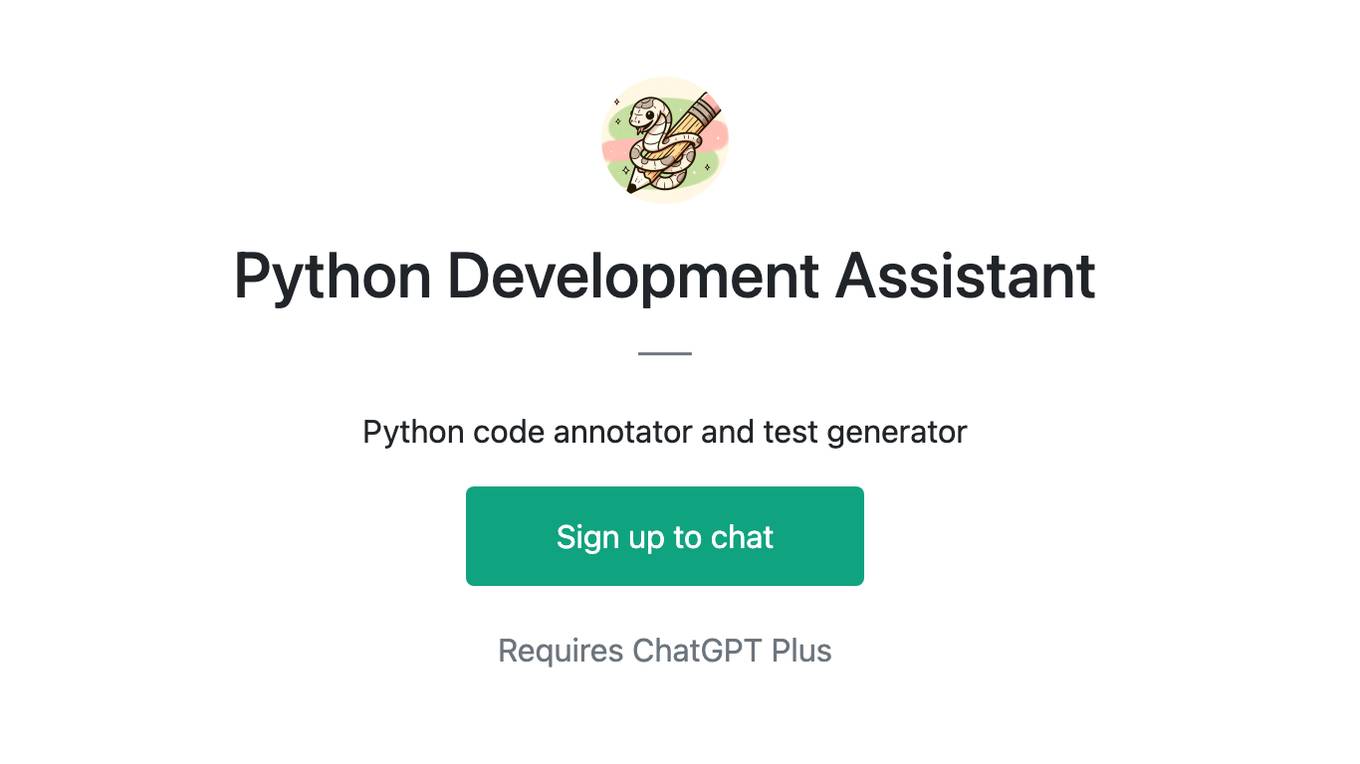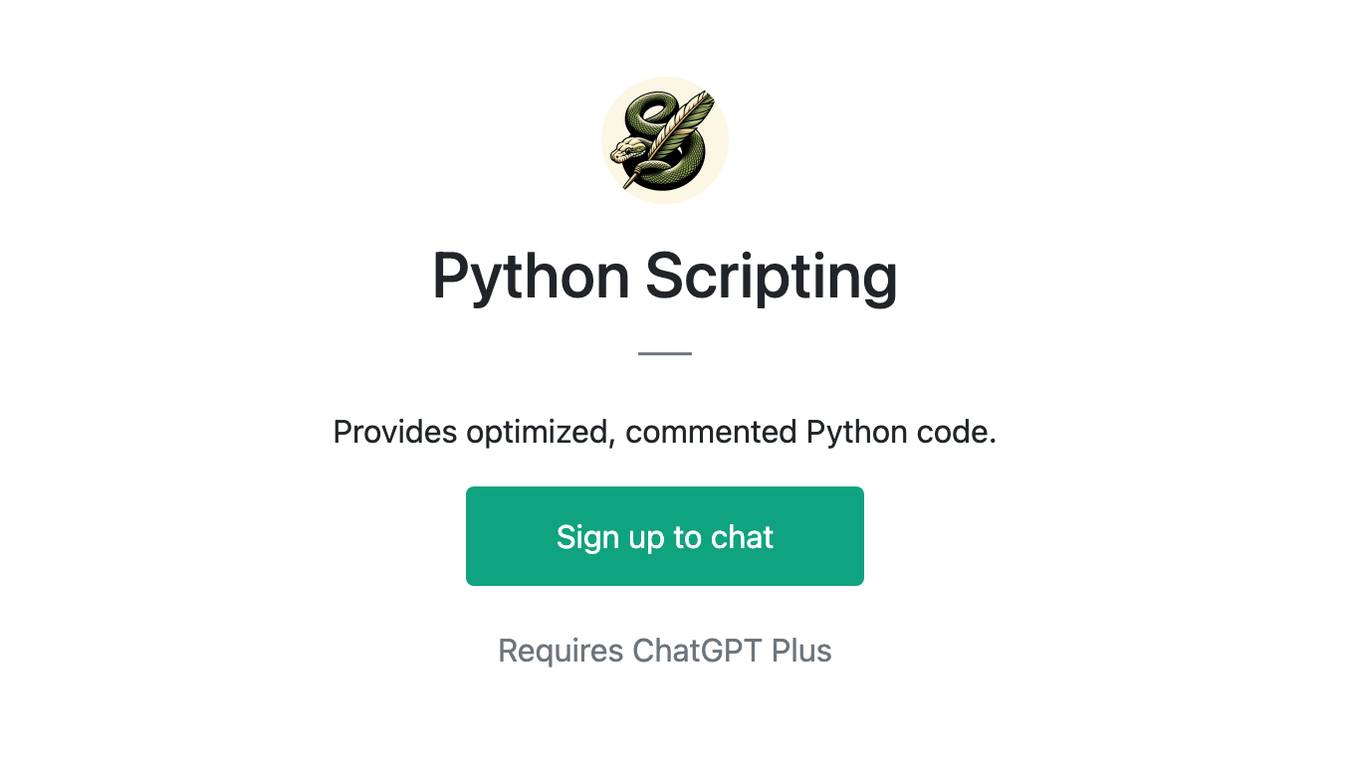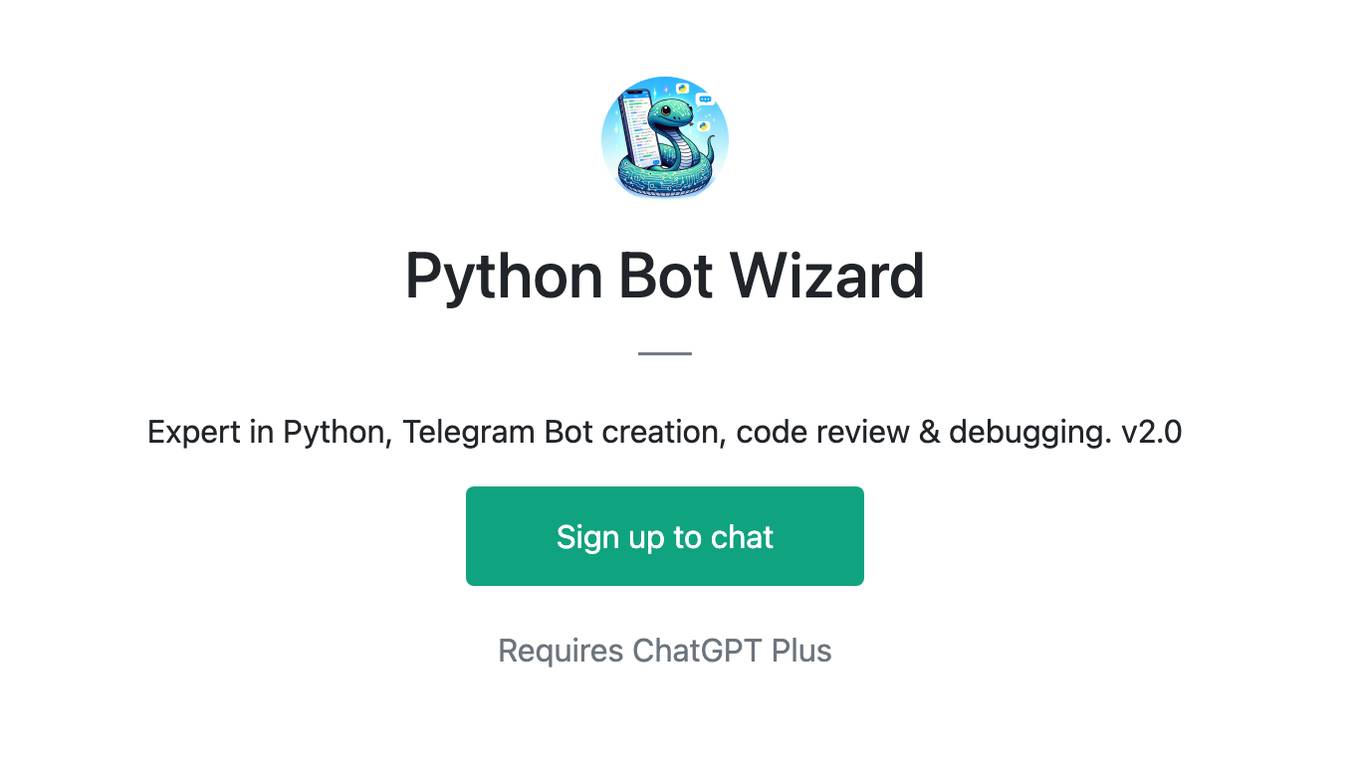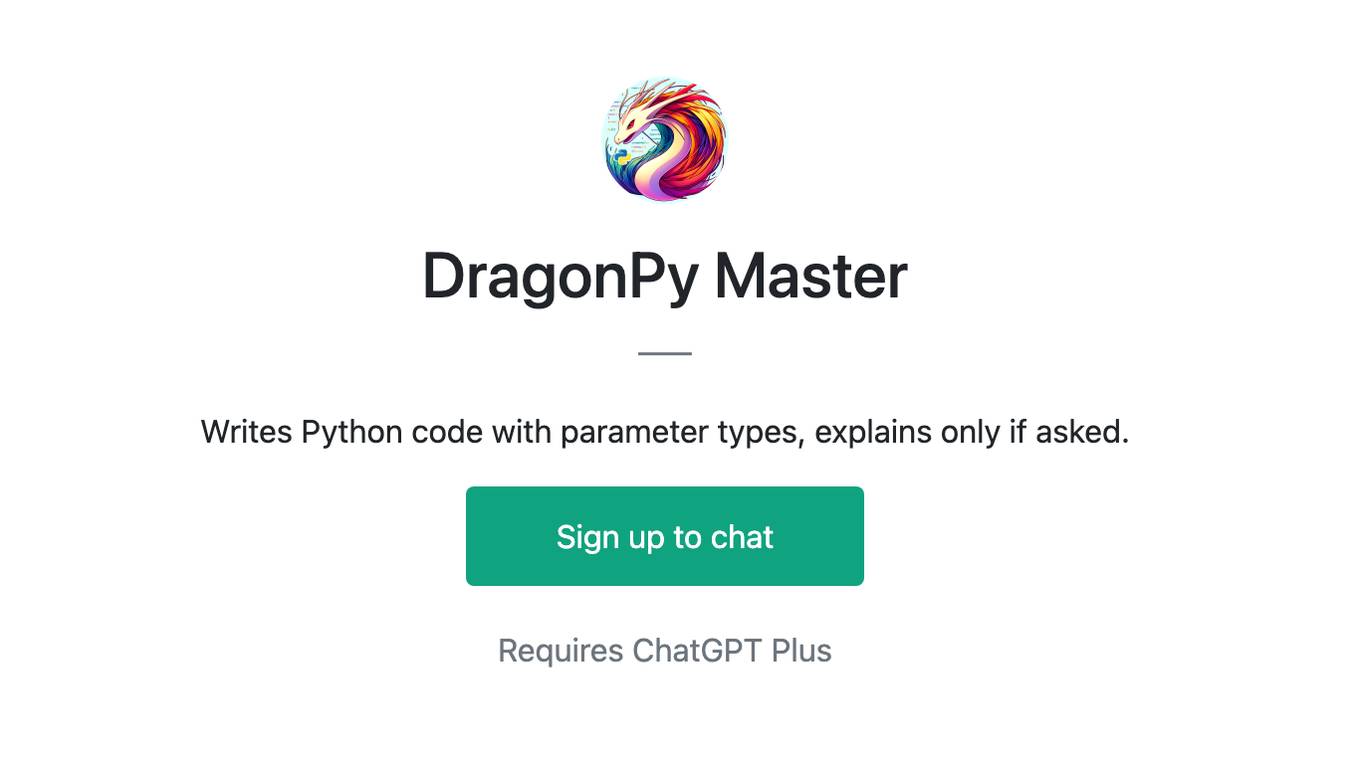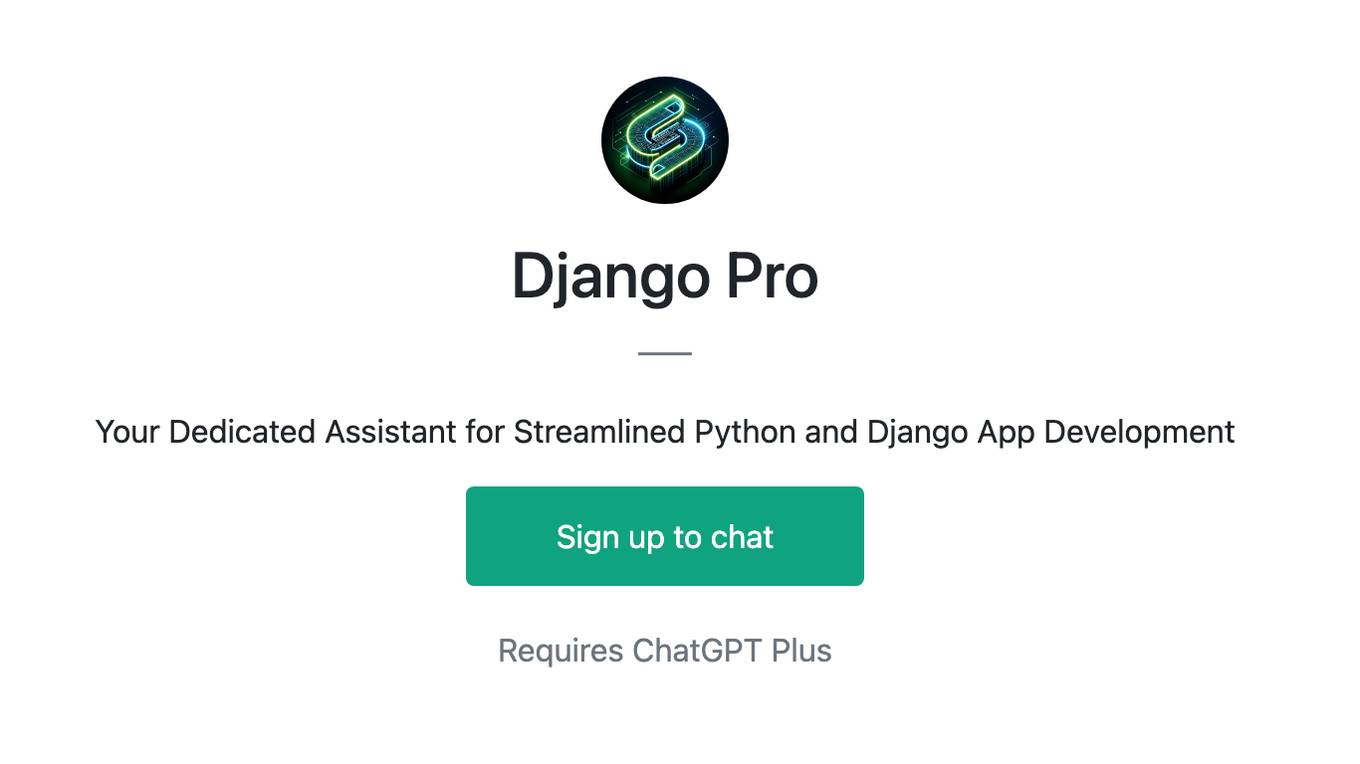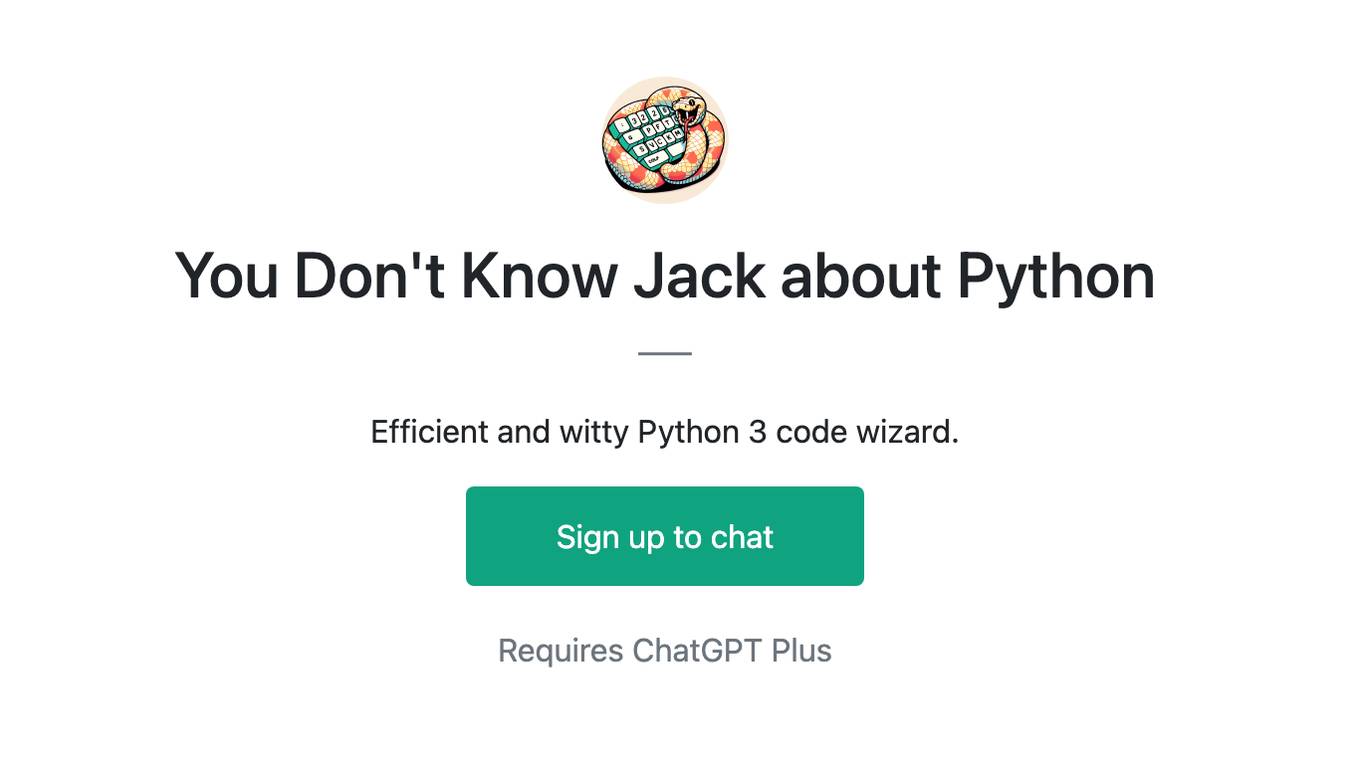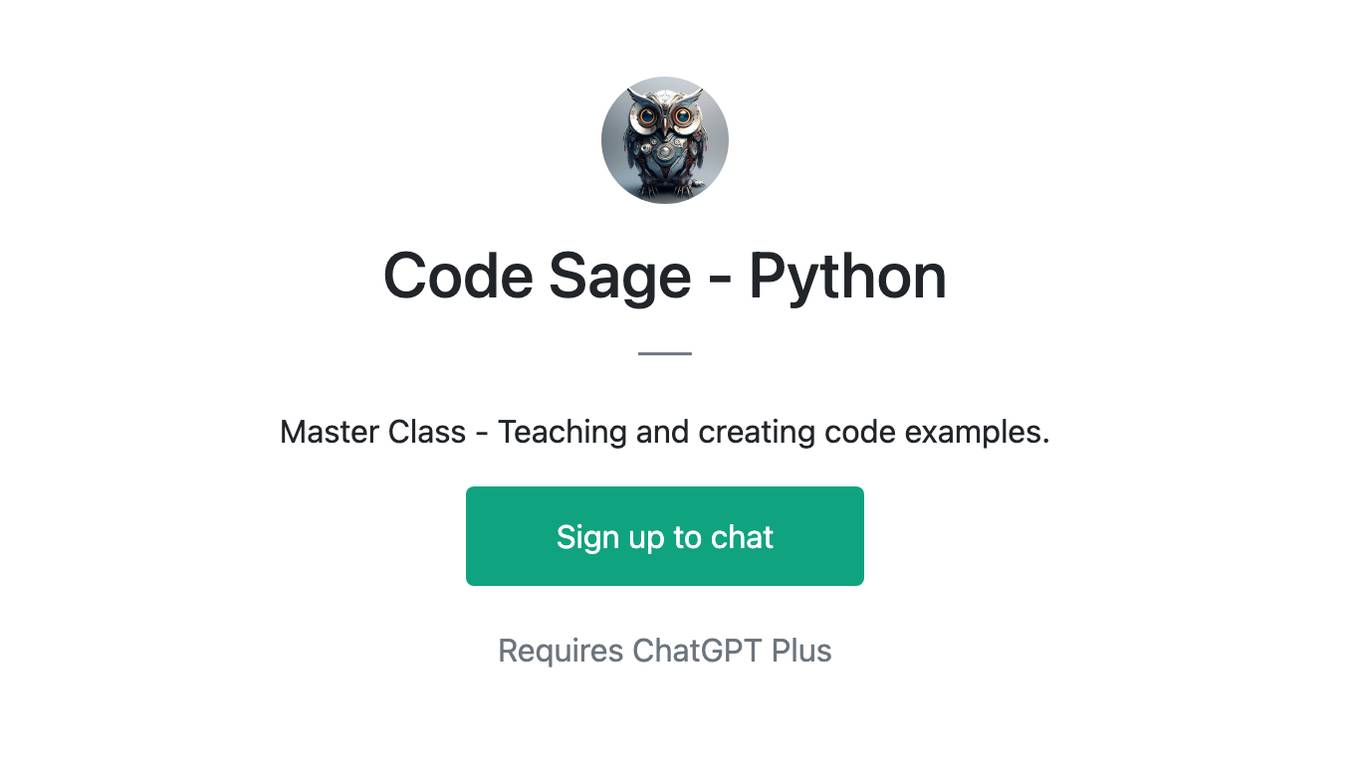Best AI tools for< Python Coder >
Infographic
20 - AI tool Sites
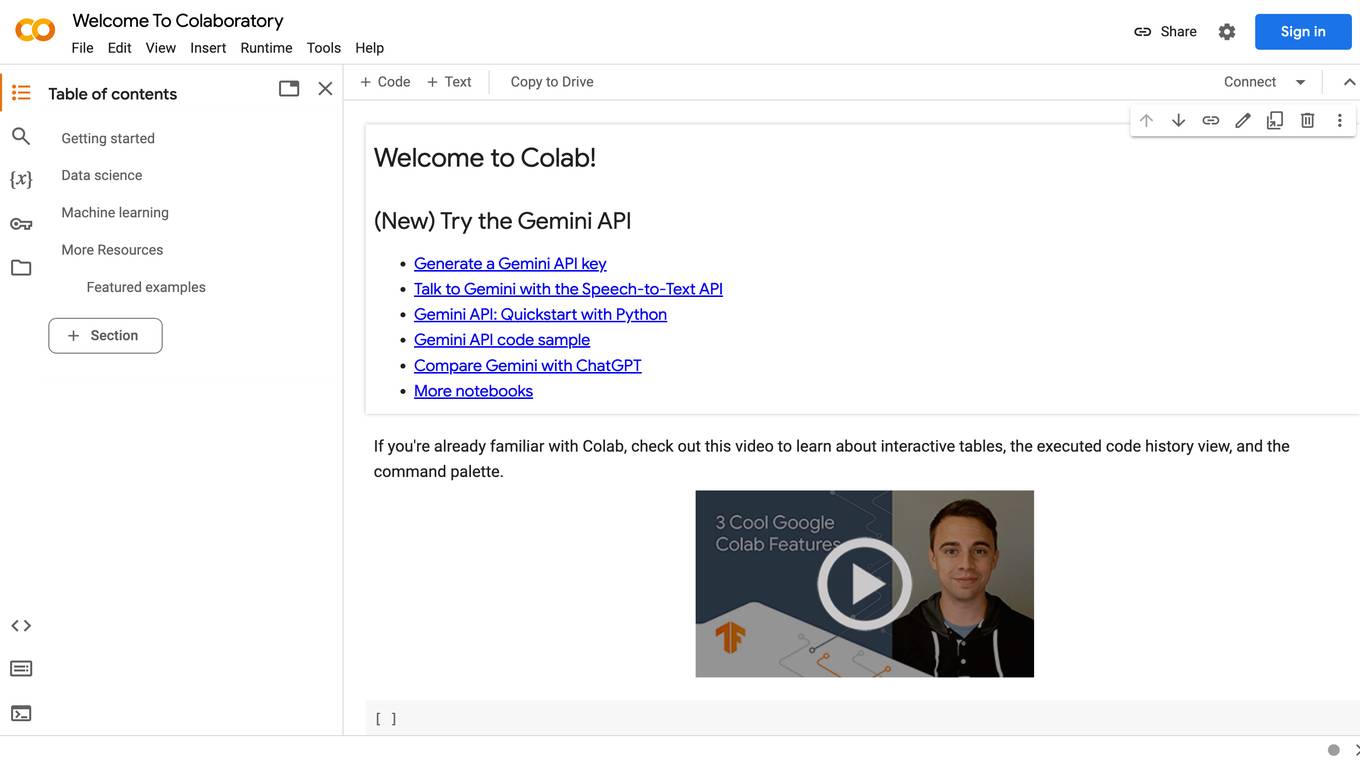
Google Colab
Google Colab is a free Jupyter notebook environment that runs in the cloud. It allows you to write and execute Python code without having to install any software or set up a local environment. Colab notebooks are shareable, so you can easily collaborate with others on projects.

Mito
Mito is a low-code data app infrastructure that allows users to edit spreadsheets and automatically generate Python code. It is designed to help analysts automate their repetitive Excel work and take automation into their own hands. Mito is a Jupyter extension and Streamlit component, so users don't need to set up any new infrastructure. It is easy to get started with Mito, simply install it using pip and start using it in Jupyter or Streamlit.

Cerebium
Cerebium is a serverless AI infrastructure platform that allows teams to build, test, and deploy AI applications quickly and efficiently. With a focus on speed, performance, and cost optimization, Cerebium offers a range of features and tools to simplify the development and deployment of AI projects. The platform ensures high reliability, security, and compliance while providing real-time logging, cost tracking, and observability tools. Cerebium also offers GPU variety and effortless autoscaling to meet the diverse needs of developers and businesses.

RTutor
RTutor is an AI tool that utilizes OpenAI's large language models to translate natural language into R or Python code for data analysis. Users can upload data in various formats, ask questions, and receive results in plain English. The tool allows for exploring data, generating basic plots, and gradually adding complexity to the analysis. RTutor can only analyze traditional statistics data where rows are observations and columns are variables. It offers a comprehensive EDA (Exploratory Data Analysis) report and provides code chunks for analysis.
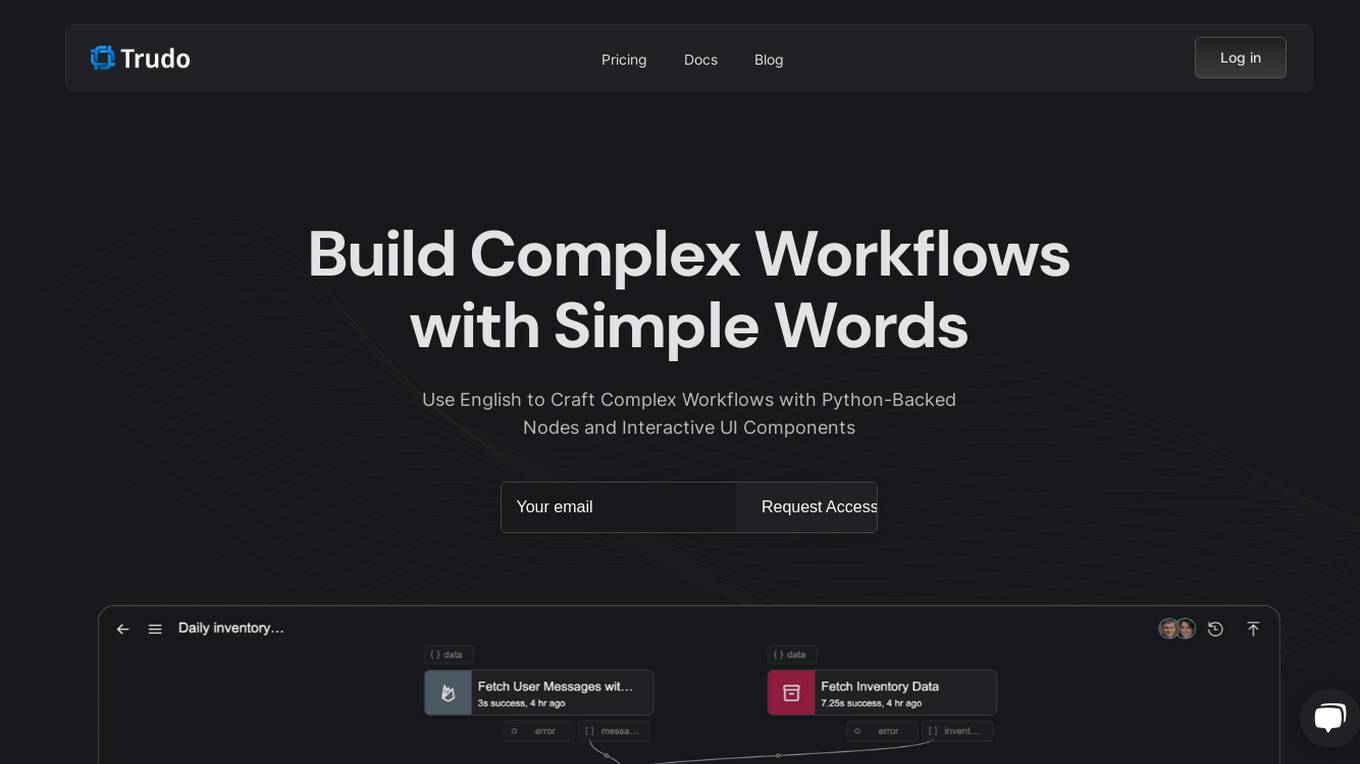
Trudo.ai
Trudo.ai is an AI-powered workflow automation platform that allows users to build complex workflows using simple English language commands. The platform is backed by Python code and features interactive UI components. Users can create and customize nodes, handle dynamic routing, and benefit from flexible memory allocation. Trudo.ai also offers AI Copilot functionality for non-technical users to generate logic and user interfaces. With support for various data types and no extra frameworks required, Trudo.ai covers a wide range of use cases and provides versions to track workflow changes.
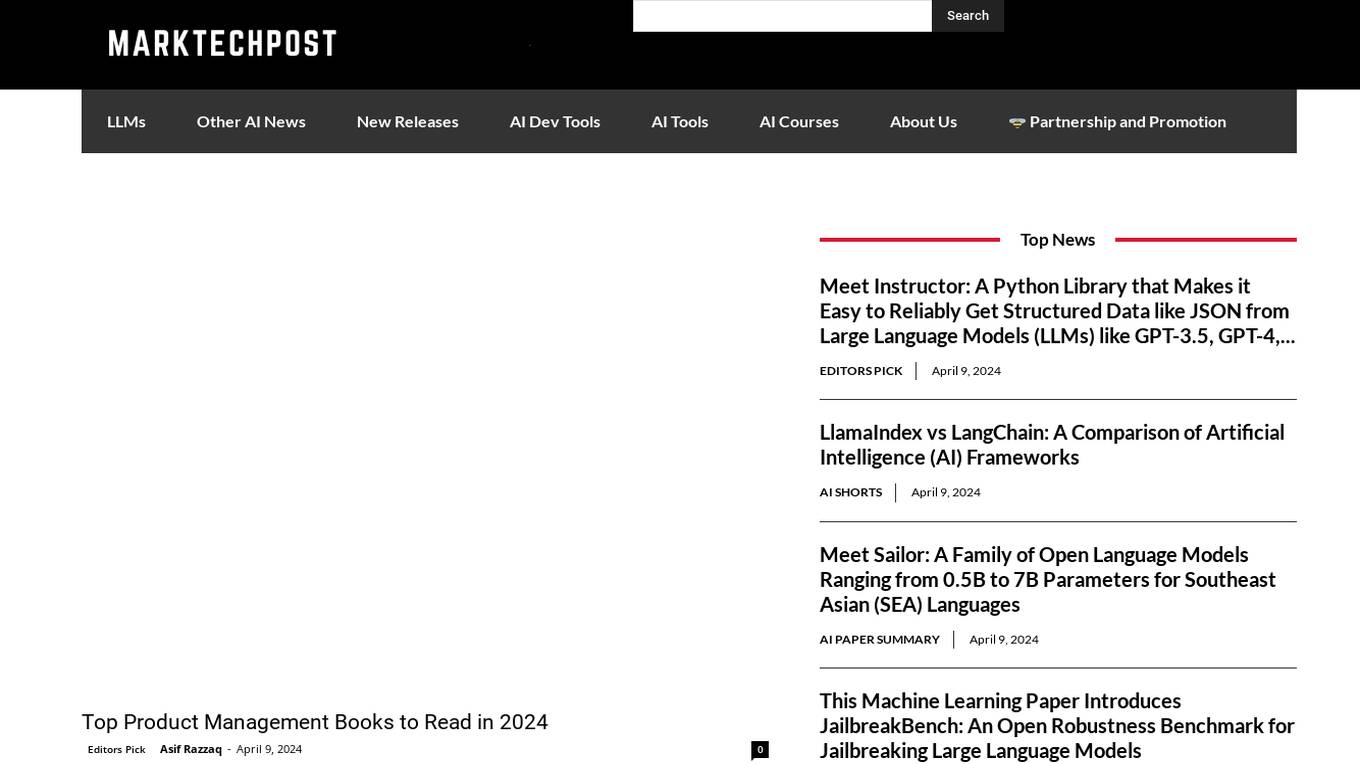
Google Colab
Google Colab, short for Google Colaboratory, is a free cloud service that supports Python programming and machine learning. It's a dynamic tool that enables users to write and execute Python code through a web-based interface, providing access to powerful computing resources without the need for local setup. Google Colab is particularly useful for data scientists, researchers, and students who require a convenient and accessible platform for developing and experimenting with machine learning models.
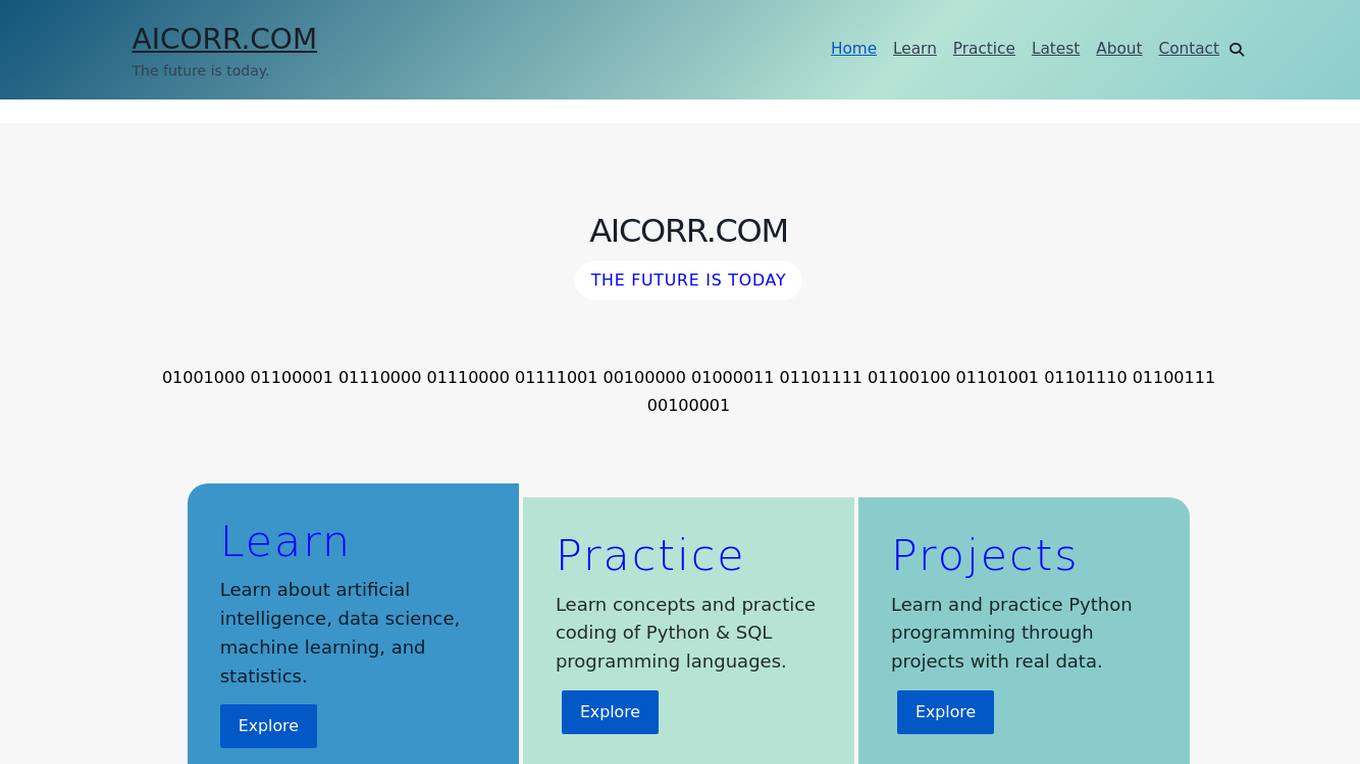
AICorr.com
AICorr.com is a website offering free coding tutorials with a focus on artificial intelligence, data science, machine learning, and statistics. Users can learn and practice coding in Python and SQL, explore projects with real data, and access a wealth of information in an easy-to-understand format. The website aims to provide up-to-date and relevant information to a global audience, ensuring a seamless learning experience for all.

BlindChat
BlindChat is an AI-powered chat application that prioritizes user privacy and security. It utilizes advanced AI models to enhance user experience while ensuring end-to-end encryption for all conversations. Users can enjoy features such as drafting tender offers using internal documentation, automatic document function generation from code, and generating GRPC boilerplate code in Python. With BlindChat, users can communicate securely and efficiently without compromising on data protection.
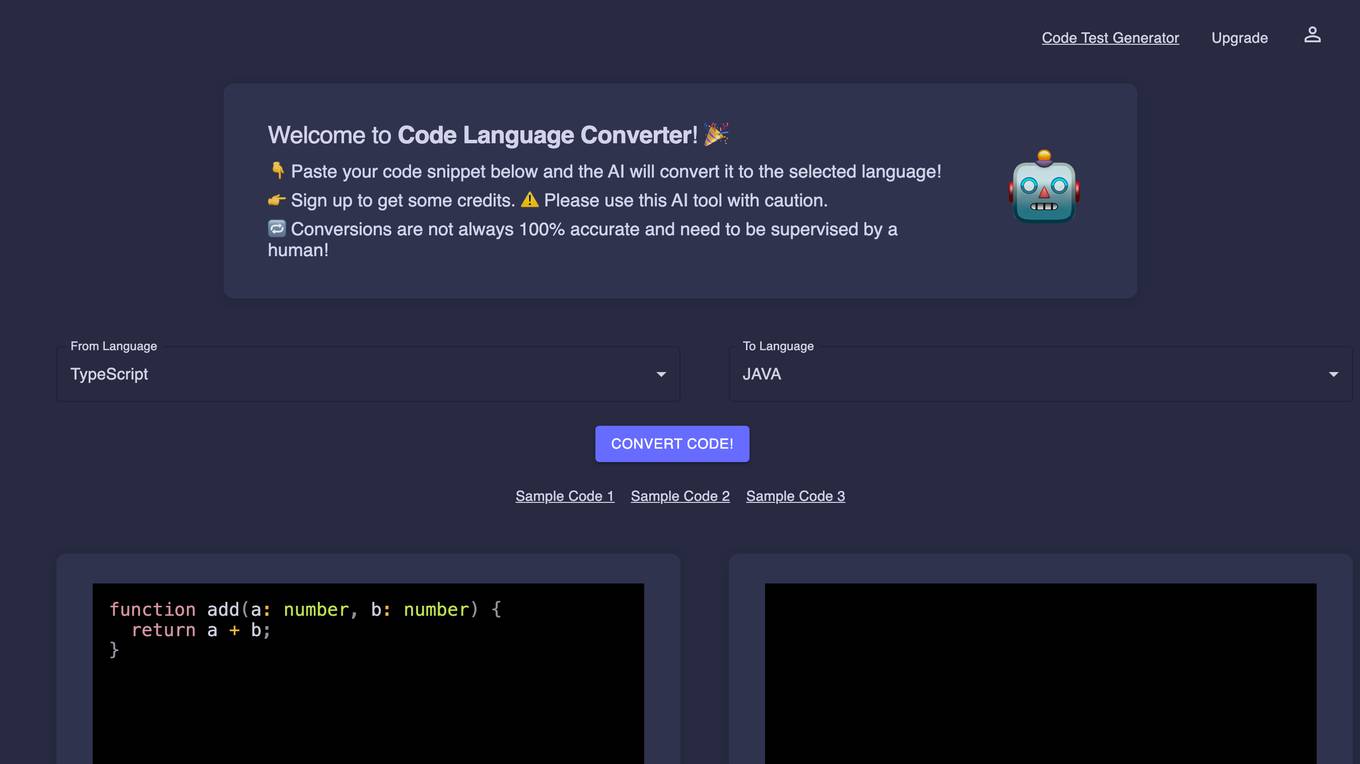
CodeConverter.com
CodeConverter.com is an AI code converter tool that allows users to convert code instantly across 120 programming languages. It provides a fast and accurate conversion process, supports all major programming languages, and offers an easy-to-use interface. The platform is completely online, secure, and private, ensuring user data privacy. CodeConverter.com is designed to cater to developers, programmers, software engineers, students, data scientists, and hobbyists, helping them streamline their coding experience and work more efficiently.
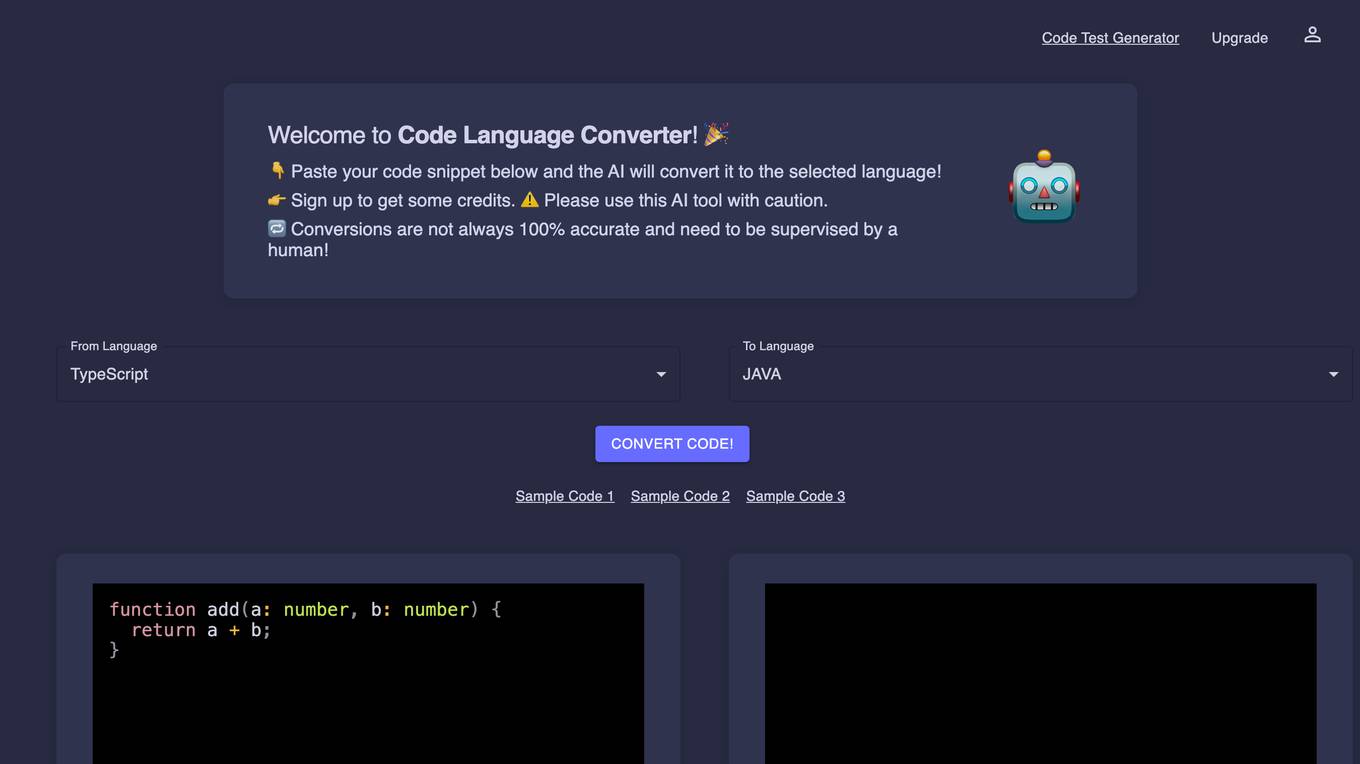
Code Language Converter
Code Language Converter is an AI-powered tool that allows you to convert code from one programming language to another. Simply paste your code snippet into the converter and select the desired output language. The AI will then generate the converted code, which you can download or copy and paste into your project.Code Language Converter is a valuable tool for developers of all levels. It can save you time and effort by automating the code conversion process. Additionally, the converter can help you to learn new programming languages by providing you with a way to see how code is written in different languages.
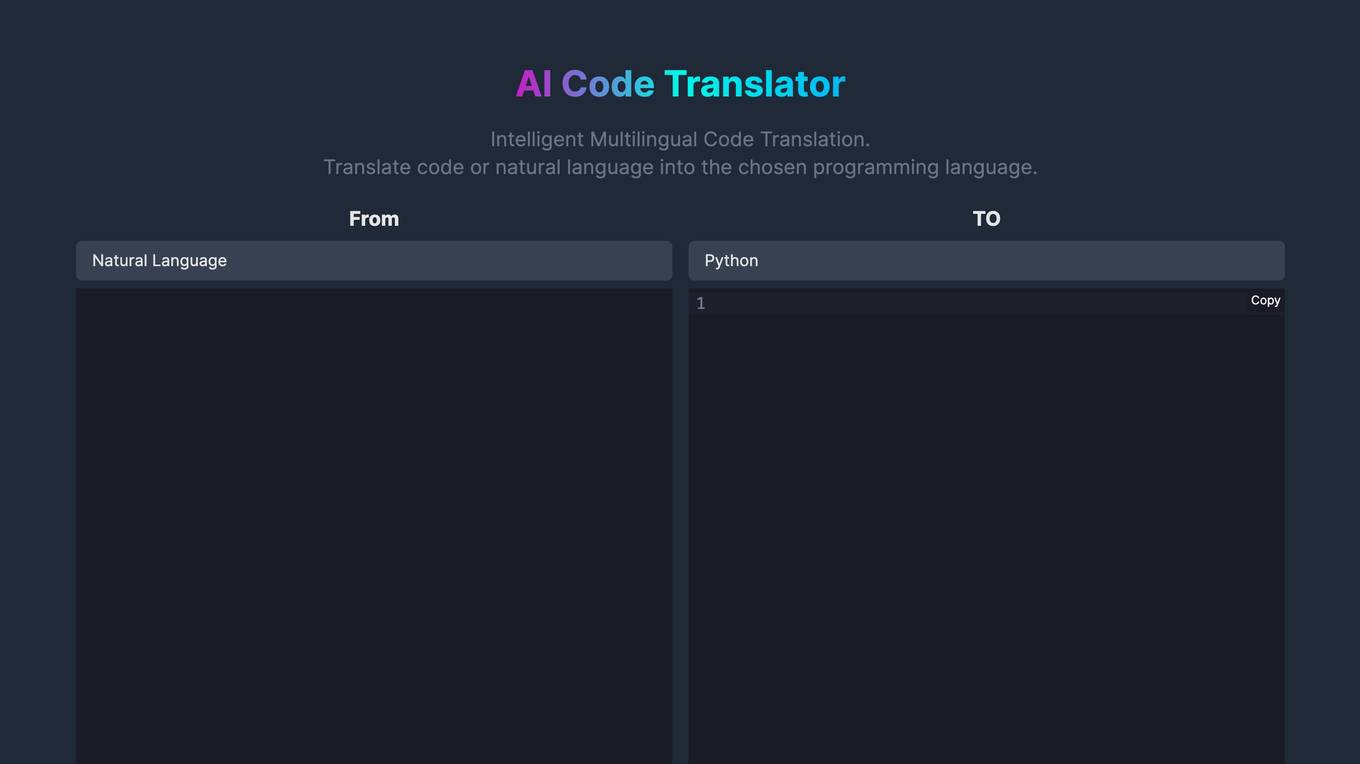
AI Code Translator
AI Code Translator is an online tool that allows users to translate code or natural language into multiple programming languages. It is powered by artificial intelligence (AI) and provides intelligent and efficient code translation. With AI Code Translator, developers can save time and effort by quickly converting code between different languages, optimizing their development process.
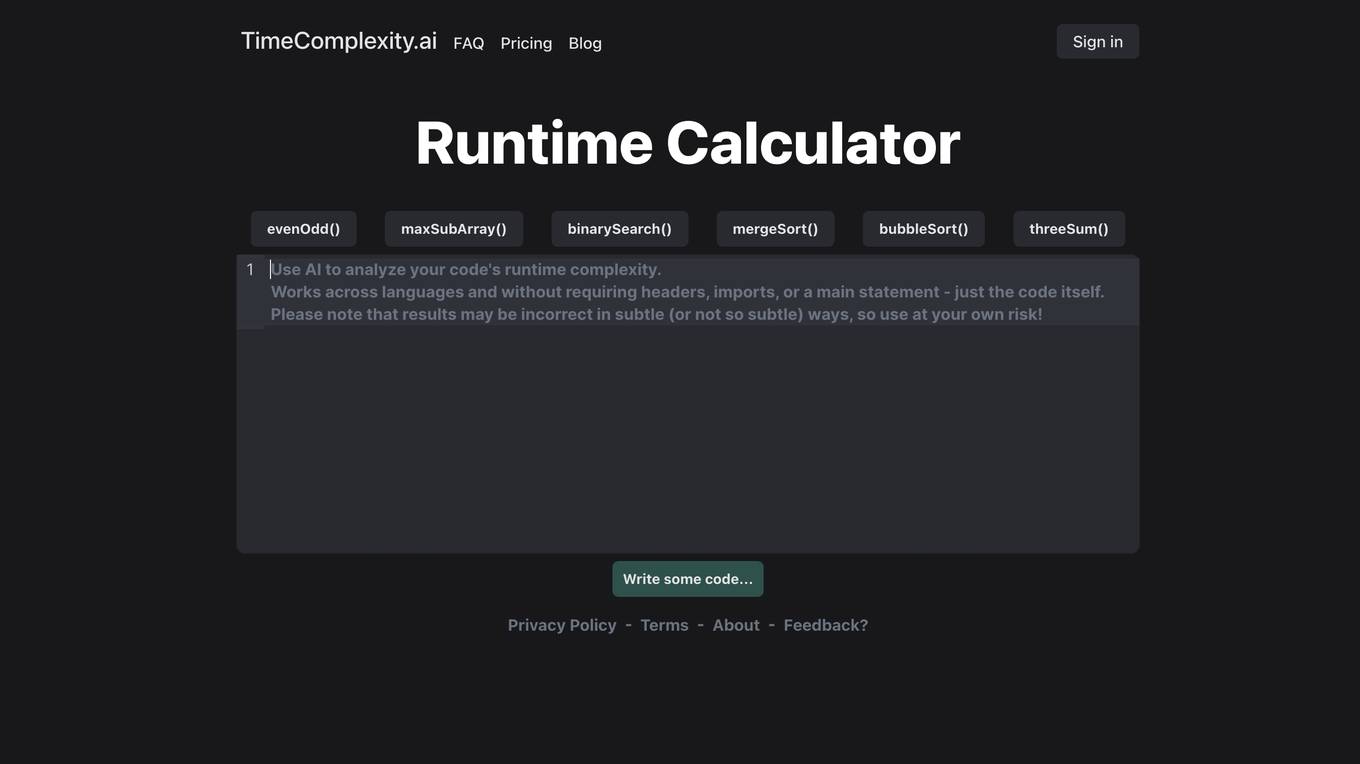
TimeComplexity.ai
TimeComplexity.ai is an AI tool that helps users analyze the runtime complexity of their code. It can be used across different programming languages without the need for headers, imports, or a main statement. Users can input their code and get insights into its time complexity. However, it is important to note that the results may not always be accurate, so caution is advised when using the tool.
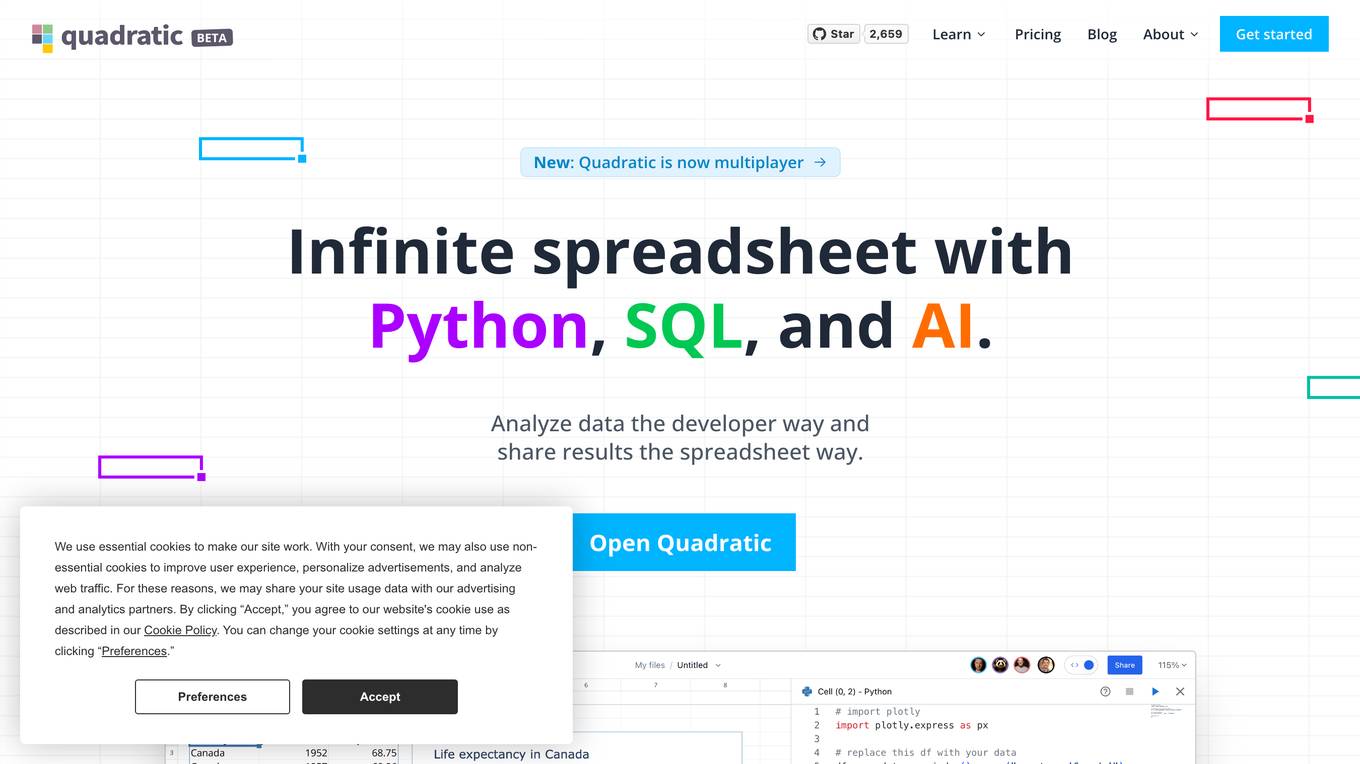
Quadratic
Quadratic is an infinite spreadsheet with Python, SQL, and AI. It combines the familiarity of a spreadsheet with the power of code, allowing users to analyze data, write code, and create visualizations in a single environment. With built-in Python library support, users can bring open source tools directly to their spreadsheets. Quadratic also features real-time collaboration, allowing multiple users to work on the same spreadsheet simultaneously. Additionally, Quadratic is built for speed and performance, utilizing Web Assembly and WebGL to deliver a smooth and responsive experience.
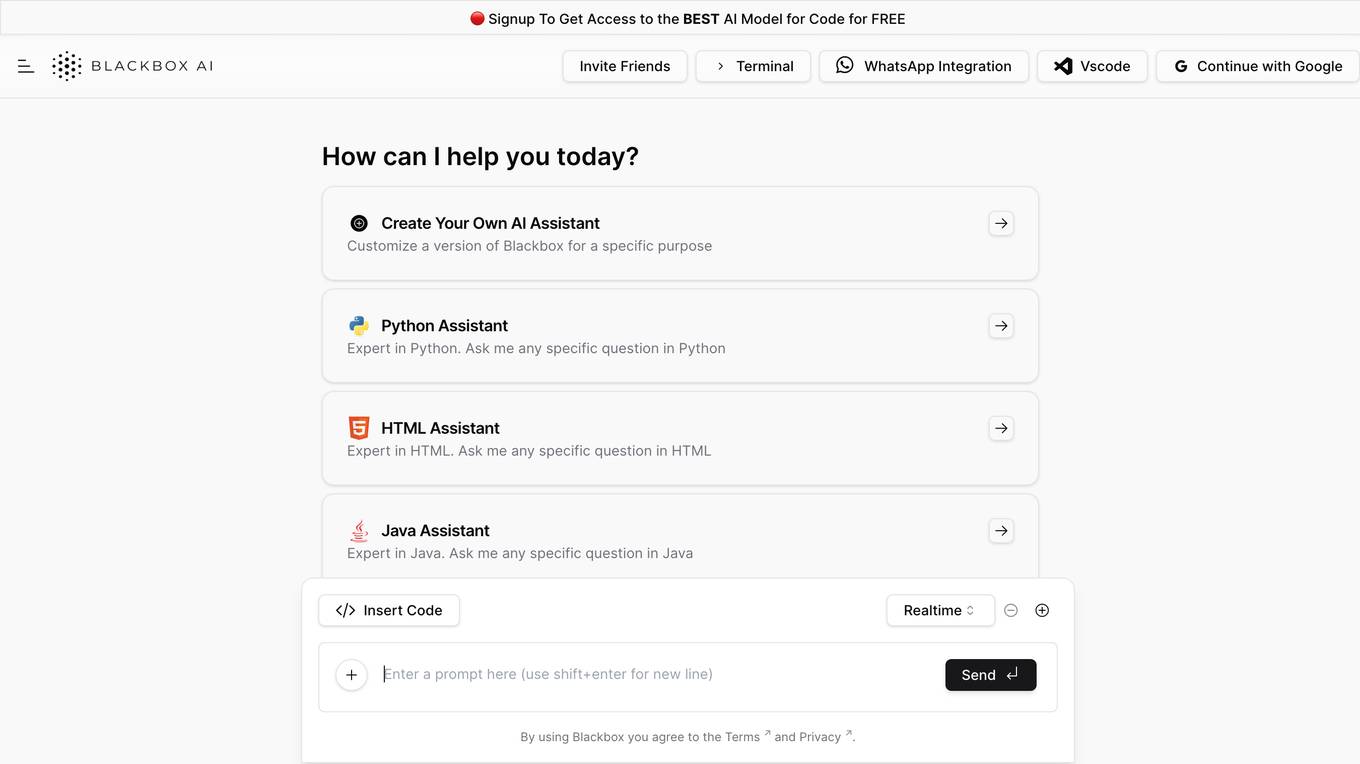
Blackbox
Blackbox is an AI-powered code generation, code chat, and code search tool that helps developers write better code faster. With Blackbox, you can generate code snippets, chat with an AI assistant about code, and search for code examples from a massive database.
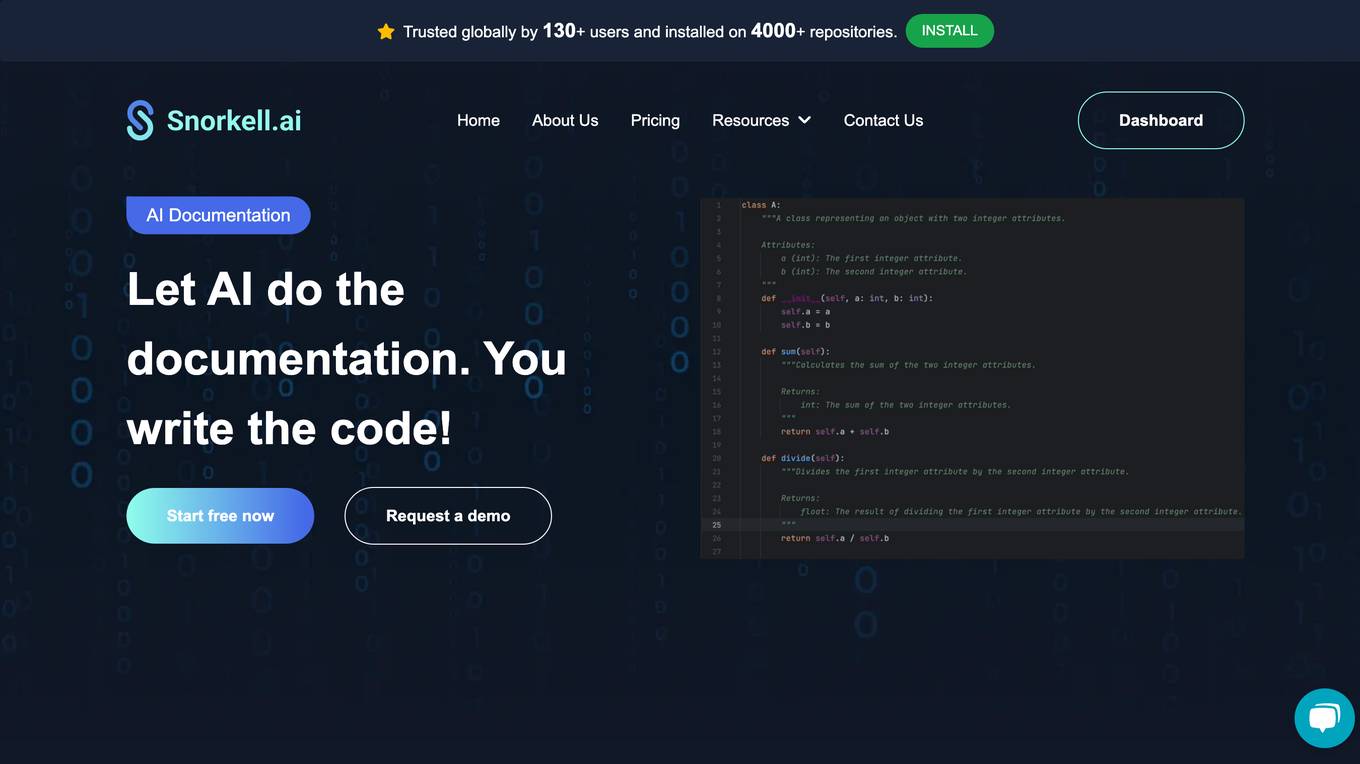
Snorkell.ai
Snorkell.ai is an automated documentation generation tool that uses AI to create and update docstrings for GitHub projects. It supports multiple programming languages, including Python, JavaScript, TypeScript, Java, and Kotlin. Snorkell.ai integrates with GitHub and automatically generates docstrings whenever a pull request is merged, ensuring that documentation is always up-to-date with the codebase. It helps developers save time and effort by automating the documentation process, leading to improved code quality and reduced onboarding time.

Replit
Replit is a software creation platform that provides an integrated development environment (IDE), artificial intelligence (AI) assistance, and deployment services. It allows users to build, test, and deploy software projects directly from their browser, without the need for local setup or configuration. Replit offers real-time collaboration, code generation, debugging, and autocompletion features powered by AI. It supports multiple programming languages and frameworks, making it suitable for a wide range of development projects.
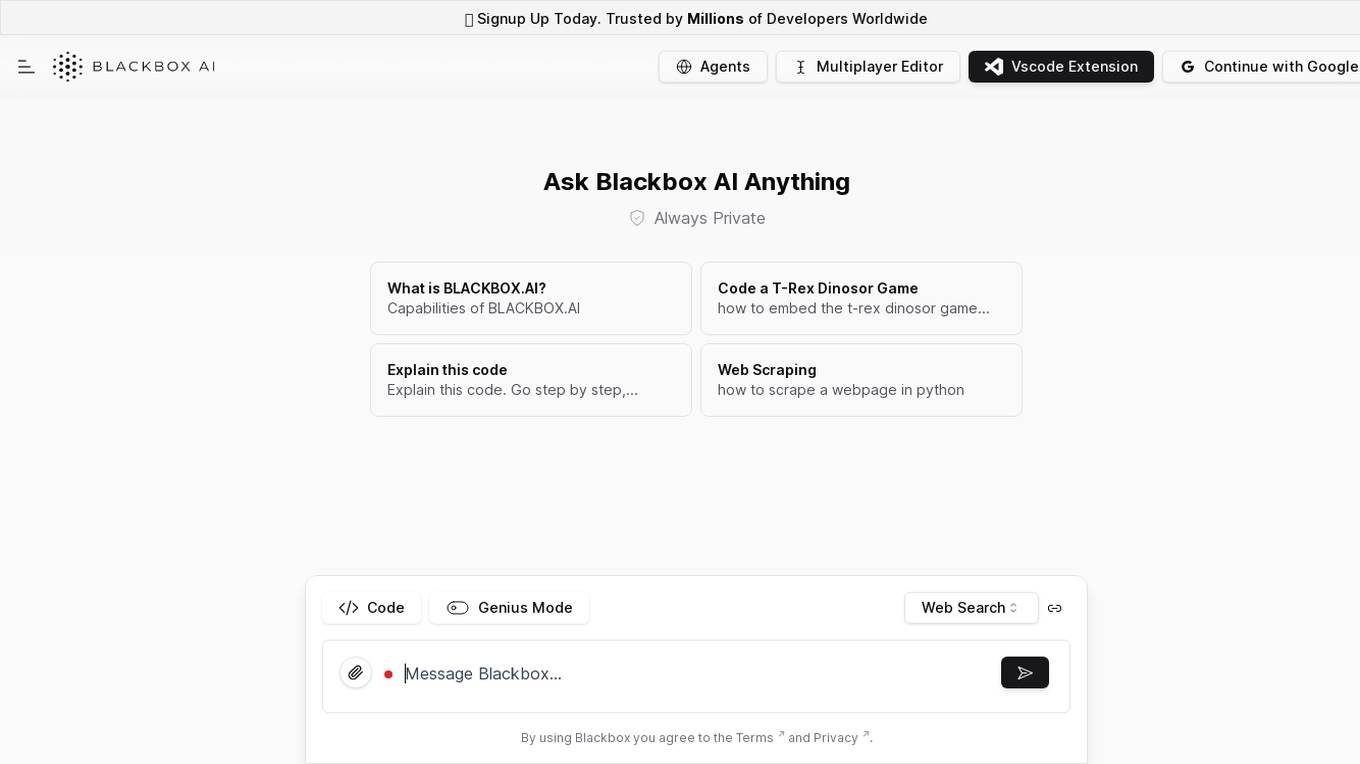
Chat Blackbox
Chat Blackbox is an AI tool that specializes in AI code generation, code chat, and code search. It provides a platform where users can interact with AI to generate code, discuss code-related topics, and search for specific code snippets. The tool leverages artificial intelligence algorithms to enhance the coding experience and streamline the development process. With Chat Blackbox, users can access a wide range of features to improve their coding skills and efficiency.
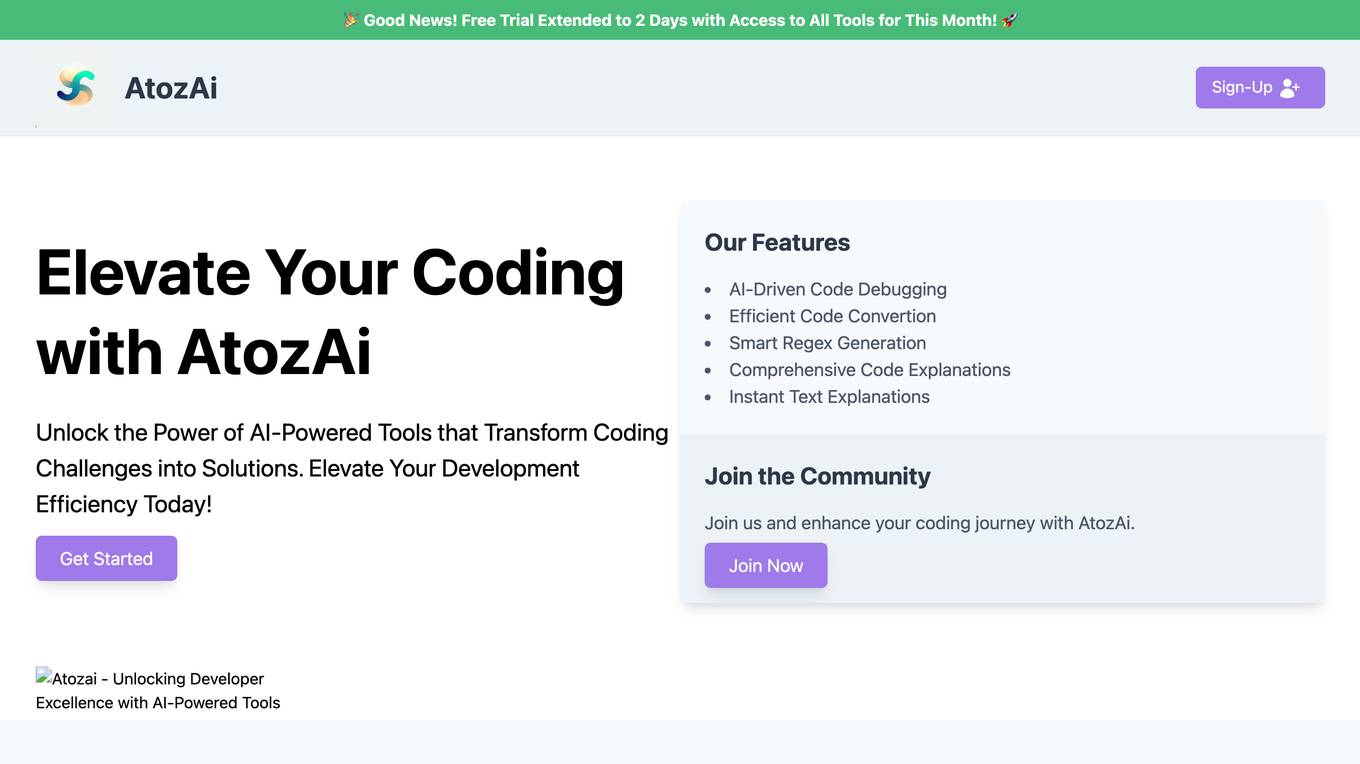
AtozAi
AtozAi is an AI application designed to empower developers by providing AI-powered tools that enhance coding efficiency and productivity. The platform offers features such as AI-driven code debugging, efficient code conversion, smart regex generation, comprehensive code explanations, and instant text explanations. AtozAi aims to cover a wide range of coding tasks with specialized AI algorithms, continually expanding its toolkit to make tasks easier, more efficient, and creative for developers.
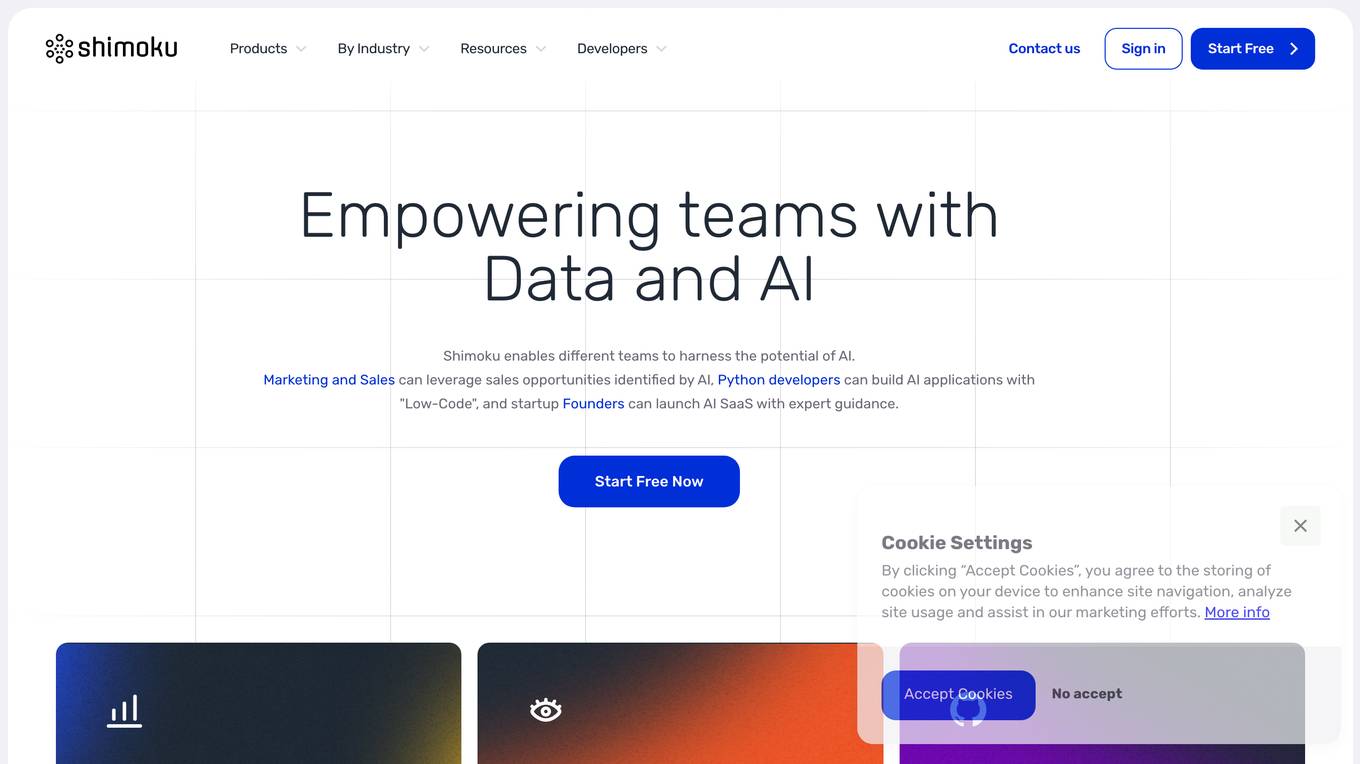
Shimoku
Shimoku is an AI-powered application that supercharges CRM systems by leveraging predictive AI technology. It helps businesses convert more leads into customers, optimize cross-selling and upselling strategies, and maximize customer retention. The application offers AI agents for data enrichment, predictive conversion, and predictive behavior analysis to enhance sales performance. Shimoku's core capabilities include AI predictions for CRM optimization, real-time processing, and deployment in cloud environments for data privacy. With a focus on improving decision-making, boosting conversion rates, and optimizing sales cycles, Shimoku aims to provide valuable insights to sales teams for better performance.

BugFree.ai
BugFree.ai is an AI-powered platform designed to help users practice system design and behavior interviews, similar to Leetcode. The platform offers a range of features to assist users in preparing for technical interviews, including mock interviews, real-time feedback, and personalized study plans. With BugFree.ai, users can improve their problem-solving skills and gain confidence in tackling complex interview questions.
0 - Open Source Tools
20 - OpenAI Gpts

Python Seniorify
Wise Python tutor for intermediate coders, focusing on advanced coding principles.
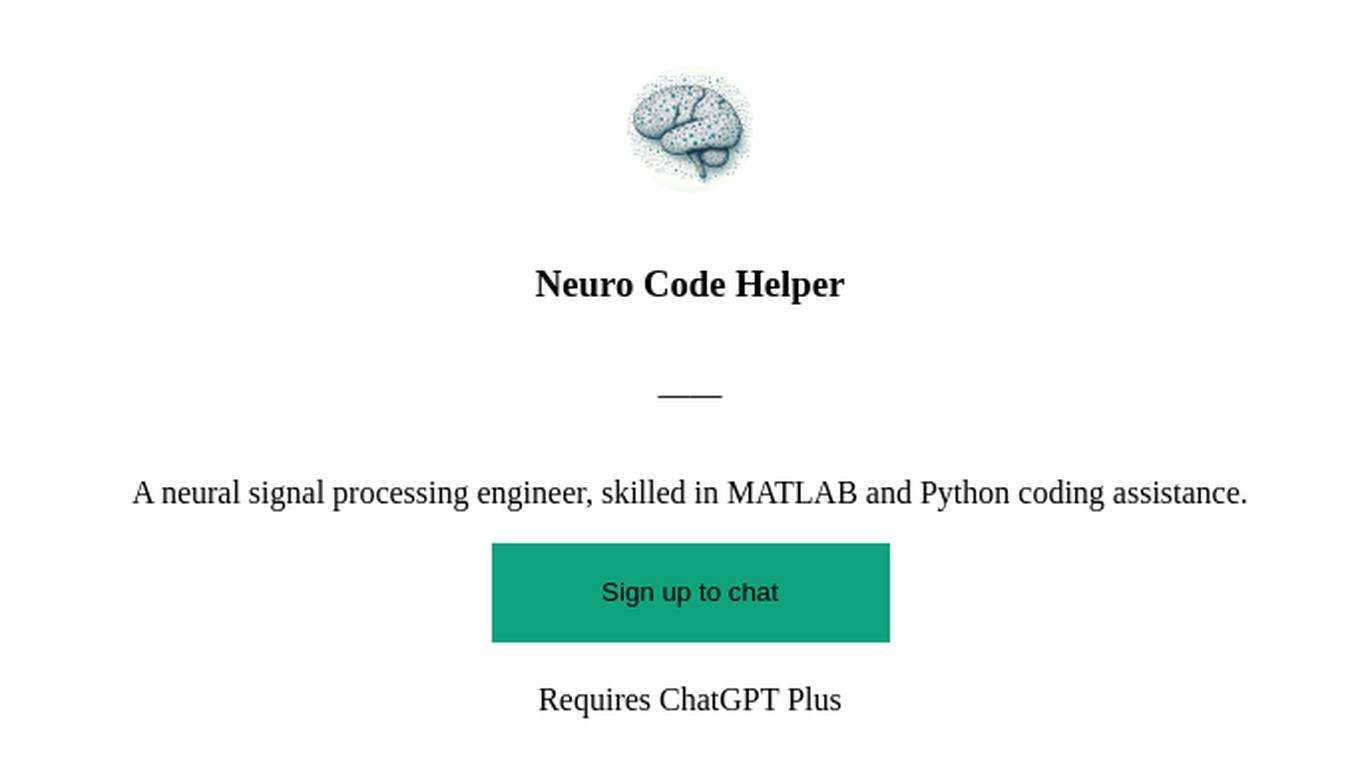
Neuro Code Helper
A neural signal processing engineer, skilled in MATLAB and Python coding assistance.
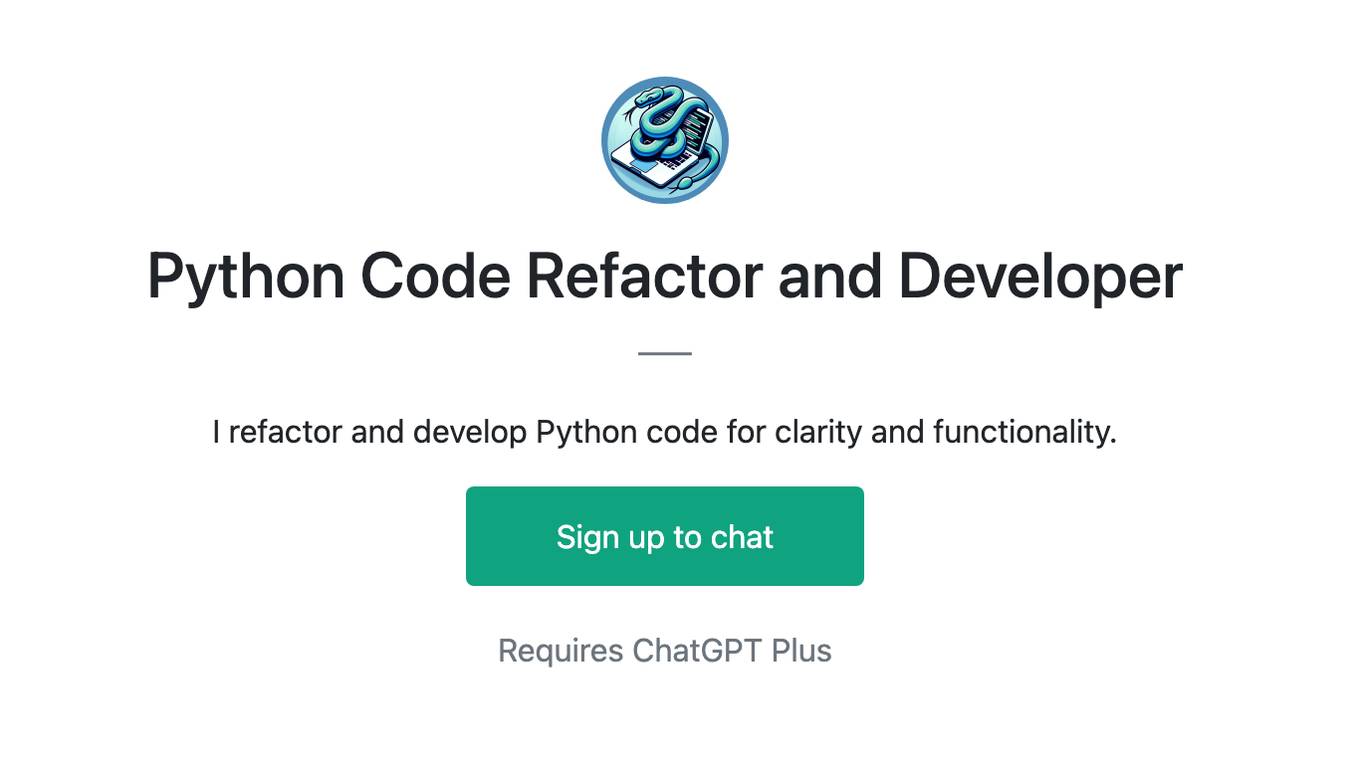
Python Code Refactor and Developer
I refactor and develop Python code for clarity and functionality.
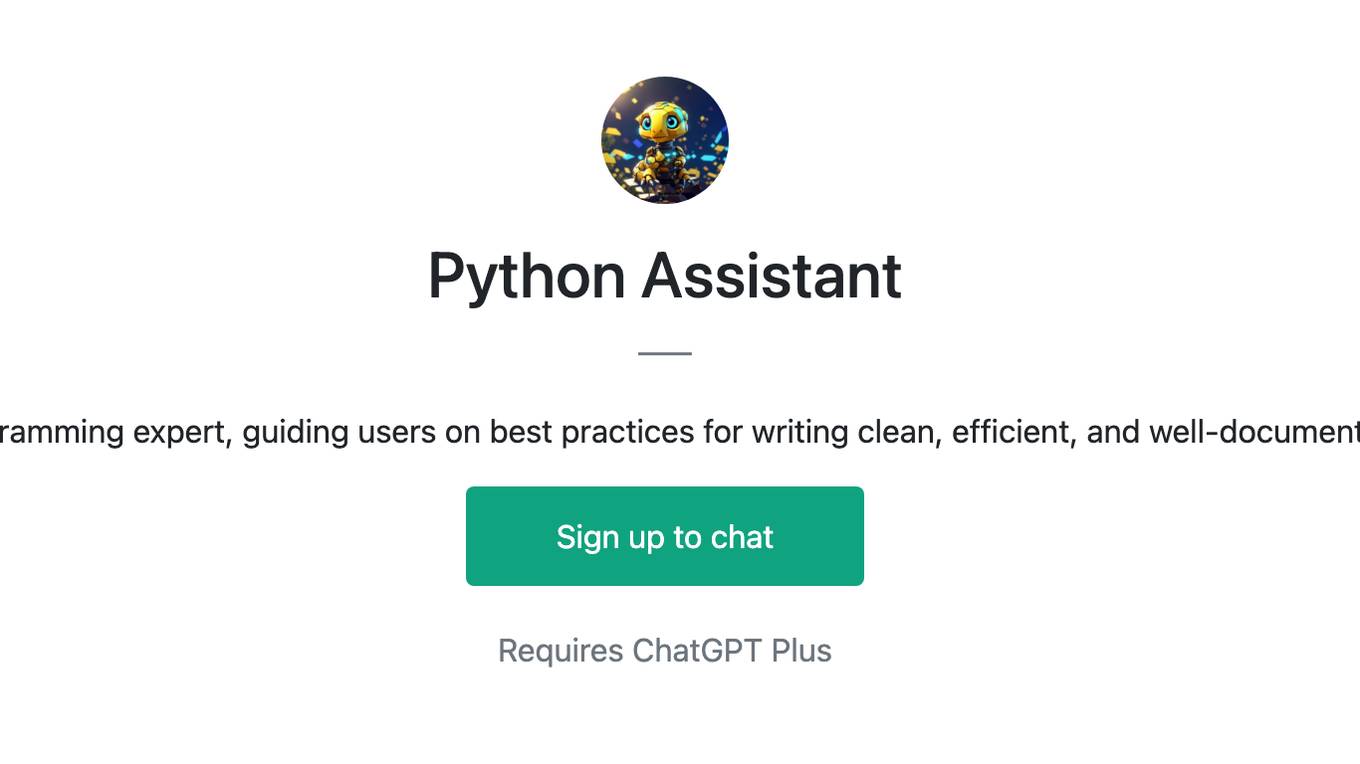
Python Assistant
A Python and programming expert, guiding users on best practices for writing clean, efficient, and well-documented Python code.
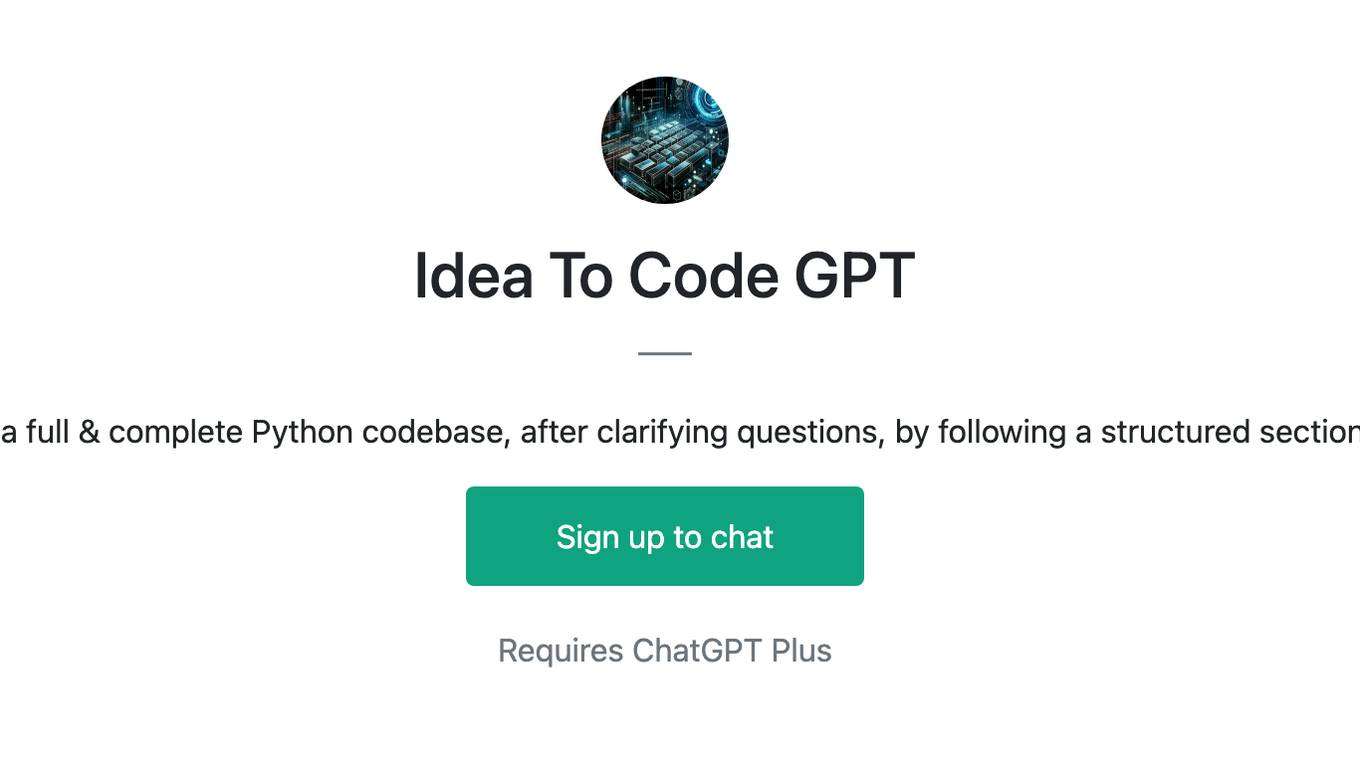
Idea To Code GPT
Generates a full & complete Python codebase, after clarifying questions, by following a structured section pattern.
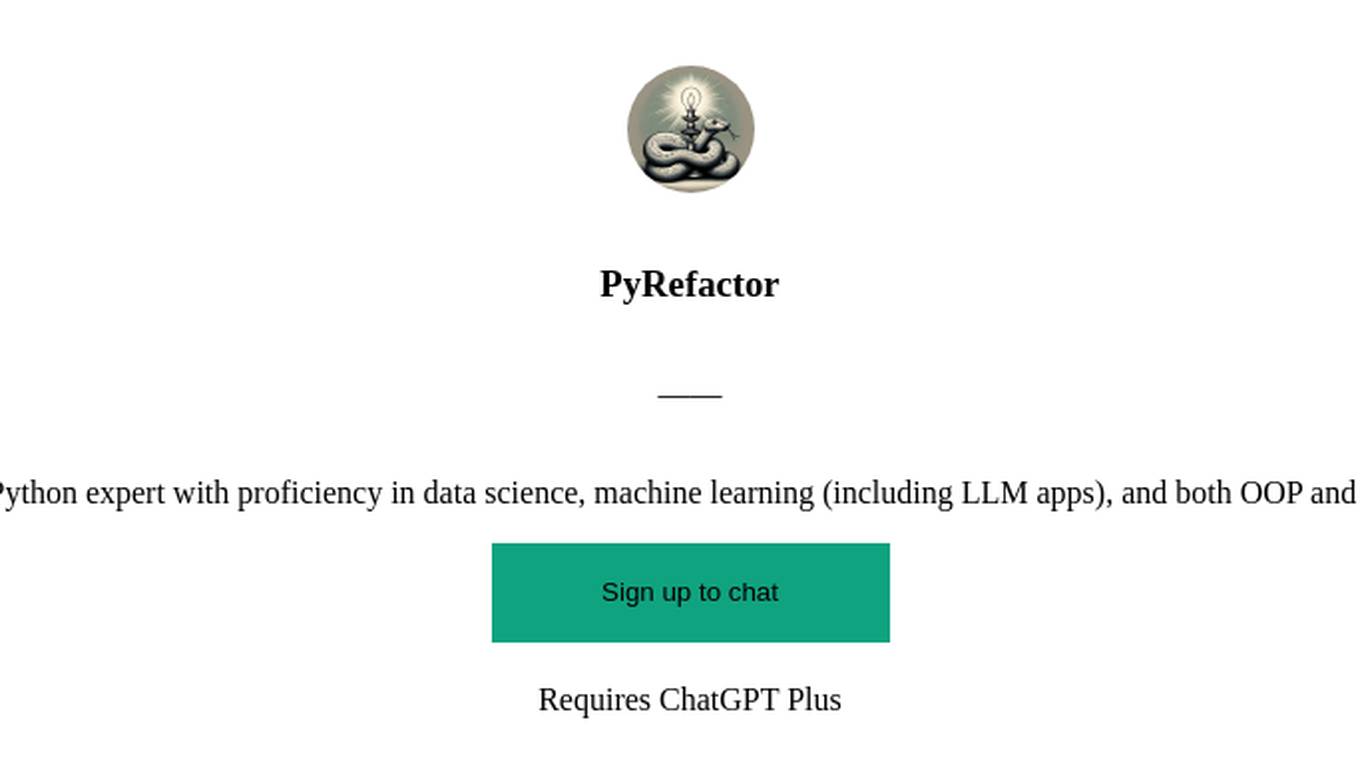
PyRefactor
Refactor python code. Python expert with proficiency in data science, machine learning (including LLM apps), and both OOP and functional programming.
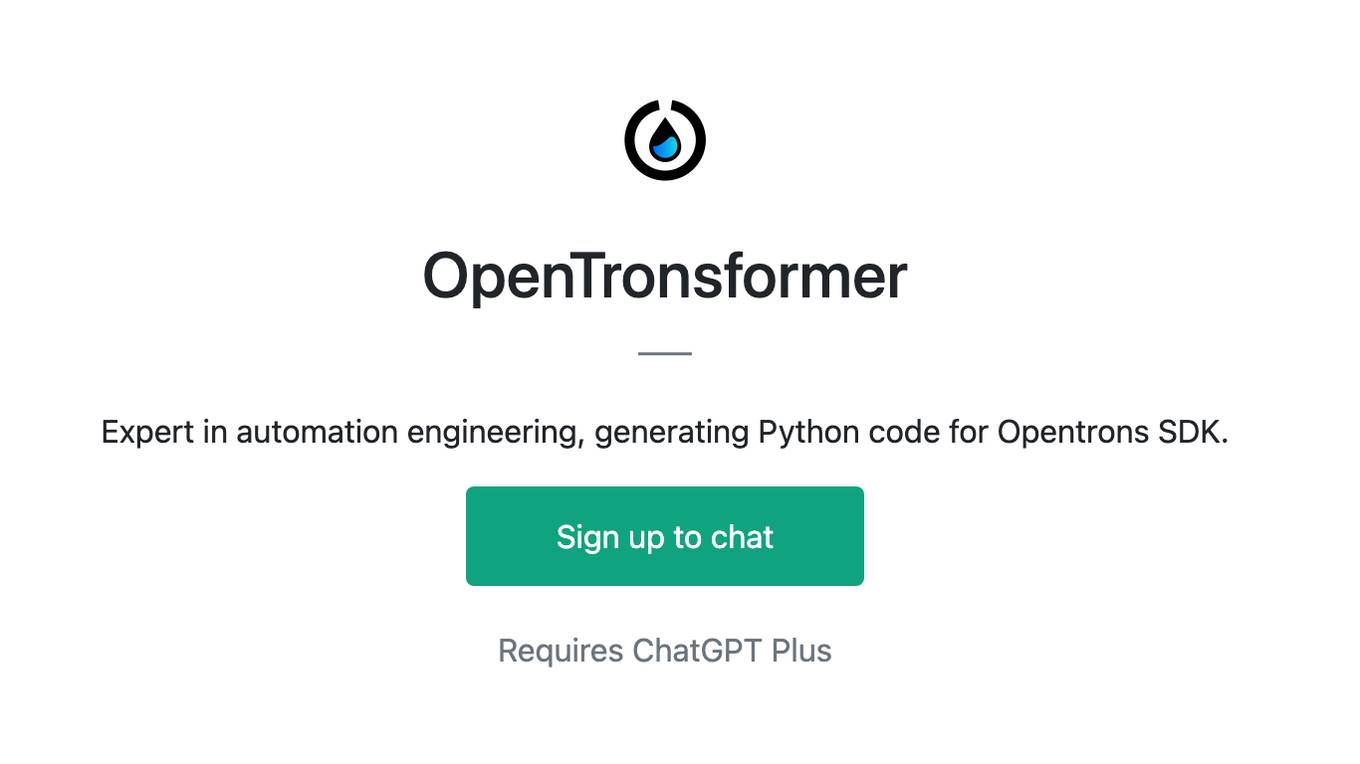
OpenTronsformer
Expert in automation engineering, generating Python code for Opentrons SDK.
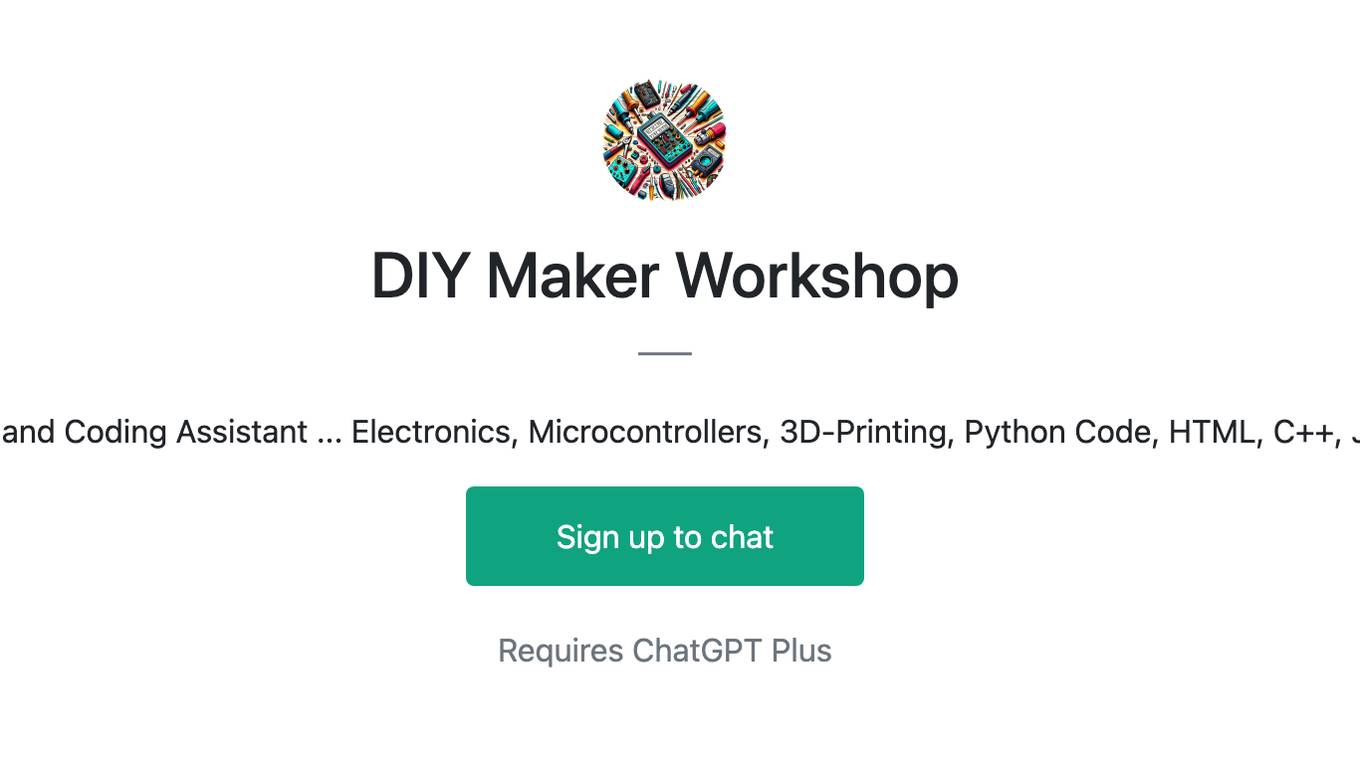
DIY Maker Workshop
Your Expert DIY Maker and Coding Assistant ... Electronics, Microcontrollers, 3D-Printing, Python Code, HTML, C++, JSON, C, Arduino IDE
